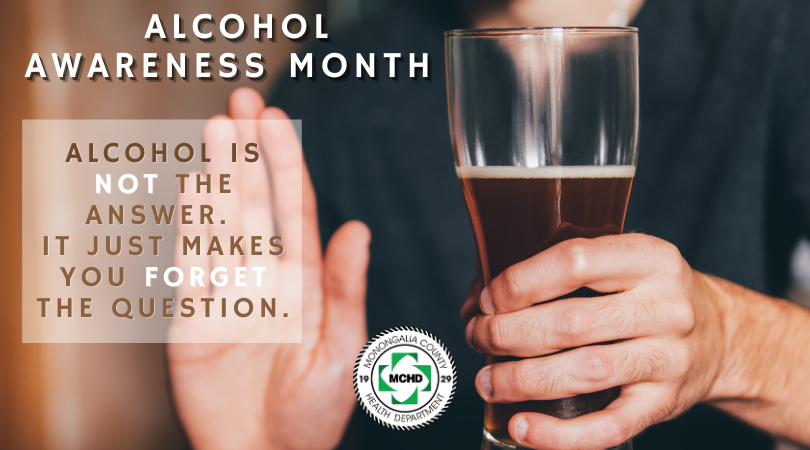Be aware of excessive alcohol consumption, especially during the pandemic

May. 4, 2022
By Cameron Archer
Two months ago today, a Bowling Green State University student in Ohio was forced to drink 40 shots of liquor in a hazing incident. Fraternity brothers took him back to his apartment, where his roommate found him. He was taken to a hospital, where he died.
As a West Virginia University student, I have witnessed multiple incidents surrounding the use of alcohol in my four years. I have seen students receive DUIs, wreck their cars and get alcohol poison. WVU is considered as a top party school in the nation, so the students believe they have to drink and party to fit in and make friends.
Alcohol Awareness Month was in March, but alcohol overuse is a year-round problem and has been worsened by the COVID-19 pandemic.
The observance was created in April 1987 by the National Council on Alcoholism and Drug Dependence. This public health program was organized as a way of increasing outreach and education to people who have struggled with alcoholism and issues related to alcohol.
This program launched with intentions of targeting college-aged students, but since has turned into a national movement to bring more attention to the effects of alcoholism. The program has targeted communities and families to help deal with drinking problems.
Drinking alcohol rates have increased since the COVID-19 pandemic has started. The pandemic has affected every person’s public health and well-being. Alcohol misuse was already a growing concern in the country. Now with the pandemic, alcohol has the potential to further complicate things.
Overuse of alcohol can interfere with the human’s immune system. This means an impaired immune system is susceptible to respiratory illnesses and could result in a greater risk of fatality from COVID-19.
Extensive effects of the pandemic have increased excessive alcohol consumption in the country. Alcohol sales increased by more than 55% when the pandemic first began. The stress from this pandemic can increase drinking habits. Being socially isolated and physically distanced can worsen anxiety and depression, which can result in more alcohol intake.
Women can suffer from drinking alcohol more than men because they metabolize alcohol at slower rates. Hospitals have seen an increase of alcoholism-related diseases up to 30% compared to last year.
Alcoholism and drinking problems in college students has been on the rise since 1987, when the program first launched. Eighty percent of college students consume alcohol to some degree.
From that 80% of students, it is estimated that at least 50% engage in binge drinking, which involves consuming too much alcohol in too little time. For a typical adult, binge drinking is consuming five or more drinks (male) and four or more drinks (female), in about two hours.
Drinking alcohol in college usually starts during the first six weeks of a student’s freshman year. This is because these students feel some sort of freedom and succumb to peer pressure easily to try to fit in. Drinking alcohol as a college student is perceived to be a part of the “college experience,” but these students don’t know serious physical and emotional damage can be a result of that.
If you do want to drink alcohol while in college, you must be smart about it, as well as be above the legal drinking age. Make sure you have an additional drink with you, like water and avoid binge drinking. It’s best if you know your limits and don’t exceed them. Sipping your drink and being responsible is the safest and smartest option if you choose to drink. It is also a great idea to stay away from unfamiliar drinks and never leave any drink unattended.
And, of course, make sure you always have a ride home.
Remember, if you plan on drinking, to drink responsibly and limit yourself.
Cameron Archer is a public information office intern at Monongalia County Health Department.